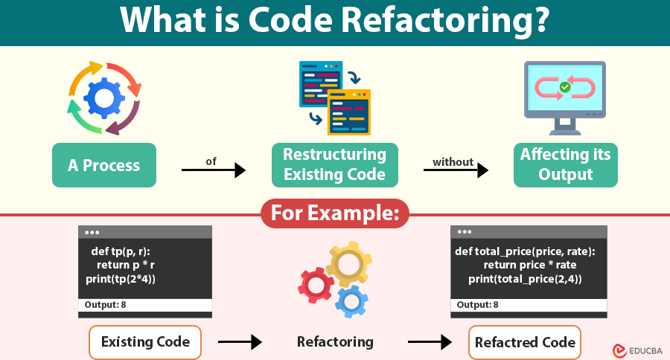Educba
3d
75

Image Credit: Educba
Code Refactoring
- Code refactoring is a process of restructuring and improving existing computer code without affecting its output.
- It focuses on enhancing non-functional attributes like readability, maintainability, and scalability.
- Refactoring is crucial for software development, akin to spring cleaning for code quality.
- Key benefits include improved readability, reduced complexity, easier maintenance, and better performance.
- Knowing when to refactor is as important as knowing how; situations include adding new features and fixing bugs.
- Common code smells indicating the need for refactoring include duplicated code and long methods.
- Popular refactoring techniques include renaming variables, extracting methods, and replacing magic numbers with constants.
- Tools like PyCharm, ESLint, and SonarQube assist in automating and analyzing code refactoring.
- A code refactoring example in Python demonstrates the process of improving code cleanliness and reusability.
- Best practices for code refactoring include writing tests first, making small incremental changes, and keeping behavior the same.
Read Full Article
4 Likes
For uninterrupted reading, download the app